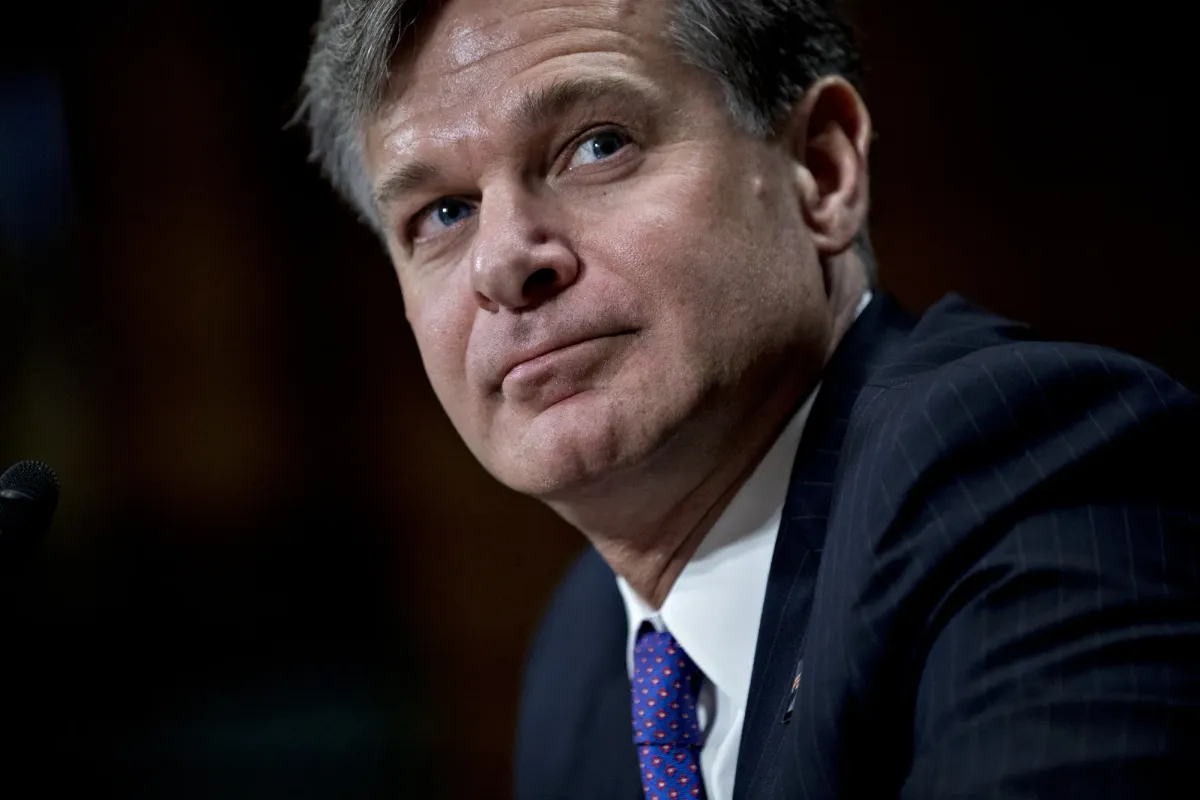Christopher Wray Announces Resignation, Clearing Path for Trump’s Kash Patel Nomination
FBI Director Christopher Wray announces his resignation at the end of President Joe Biden's term, amid tensions with the Trump administration. With Trump's nomination of Kash Patel as his successor, what does this mean for the future of the FBI and its independence

FBI Director Christopher Wray to Step Down at End of Biden's Term
FBI Director Christopher Wray has announced that he will resign from his position at the end of President Joe Biden’s term in January. Wray's decision to step down comes amid increasing pressure from the Trump administration, which has expressed its intent to nominate Kash Patel, a loyalist to former President Donald Trump, as his successor.
Wray’s resignation follows months of tension between him and the Trump administration, which has criticized his leadership and sought to replace him with someone more aligned with Trump’s political views. While Wray’s resignation may not come as a surprise given these developments, it marks the end of a contentious chapter in the history of the FBI and its relationship with the White House.
Why Is Christopher Wray Resigning?
In a town hall meeting with FBI employees on Wednesday, Wray confirmed that he would be stepping down “after weeks of careful thought.” His resignation, effective at the end of Biden’s term, reflects both the expected turnover at the top of U.S. law enforcement agencies and the political realities surrounding the FBI’s leadership.
Wray’s tenure as FBI director began in 2017, when he was appointed by President Donald Trump following the firing of then-FBI Director James Comey. Wray was chosen to fulfill a 10-year term, a length meant to insulate the FBI from political influence and ensure its independence. However, his time at the helm has been marked by clashes with the Trump administration, particularly regarding the FBI’s investigations into Russia’s interference in the 2016 election and Trump’s role in the January 6th Capitol riot.
The Rise of Kash Patel: Trump’s Choice for FBI Director
The timing of Wray’s resignation comes just weeks after Donald Trump announced that he would nominate Kash Patel, a former Trump aide and loyalist, as his pick to lead the FBI once he assumes office. Patel, who previously served as a deputy to then-Director of National Intelligence Richard Grenell, has long been a staunch supporter of Trump’s agenda, including the former president’s baseless claims about election fraud in 2020.
Patel’s nomination would mark a significant shift in the FBI’s leadership, particularly given his ties to Trump’s inner circle and his history of publicly challenging the agency's findings. Trump’s announcement to nominate Patel has been seen as a clear signal of his dissatisfaction with Wray, who was not in line with some of the former president's most controversial views and policies.
The Tension Between Wray and Trump
Throughout his time as FBI director, Christopher Wray has found himself caught in the crosshairs of Trump’s political battles. The most significant point of friction came during Wray’s congressional testimony in September, where he was sharply questioned about the FBI’s role in investigating domestic terrorism and election interference.
Trump has repeatedly expressed dissatisfaction with Wray’s leadership, accusing him of not being tough enough on law enforcement issues he considered important, such as investigating the Russia probe and alleged anti-Trump bias within the FBI. Despite these tensions, Wray maintained a relatively low profile in public confrontations with the Trump White House, which many interpreted as a desire to uphold the FBI’s reputation for independence.
What’s Next for the FBI?
Wray’s resignation is expected to pave the way for a shift in the direction of the FBI under a new administration. Trump’s decision to nominate Patel, a figure who has been aligned with his administration’s most controversial policies, could lead to significant changes within the FBI’s operations and priorities.
However, the transition at the top of the FBI could also bring challenges. The agency has long been seen as an independent body, with a mission to uphold justice without being swayed by political pressures. The appointment of a Trump loyalist like Patel would likely be scrutinized by both political opponents and FBI employees, raising concerns about the politicization of the agency.
Wray’s resignation and the prospect of Patel’s nomination highlight the ongoing tension between the Trump administration and U.S. law enforcement agencies, as well as the potential impact on the future of American justice.
What Does Wray’s Resignation Mean for the Future of the FBI?
Christopher Wray’s resignation marks the end of a difficult and divisive period for the FBI. It raises important questions about the future leadership of the agency and its ability to maintain independence in a highly polarized political environment.
The nomination of Kash Patel to replace Wray, if it goes through, could signal a major shift in the FBI’s operations, and it will undoubtedly be a focal point of political debate in the coming months. Whether the FBI can retain its credibility and neutrality under a new director remains to be seen.
